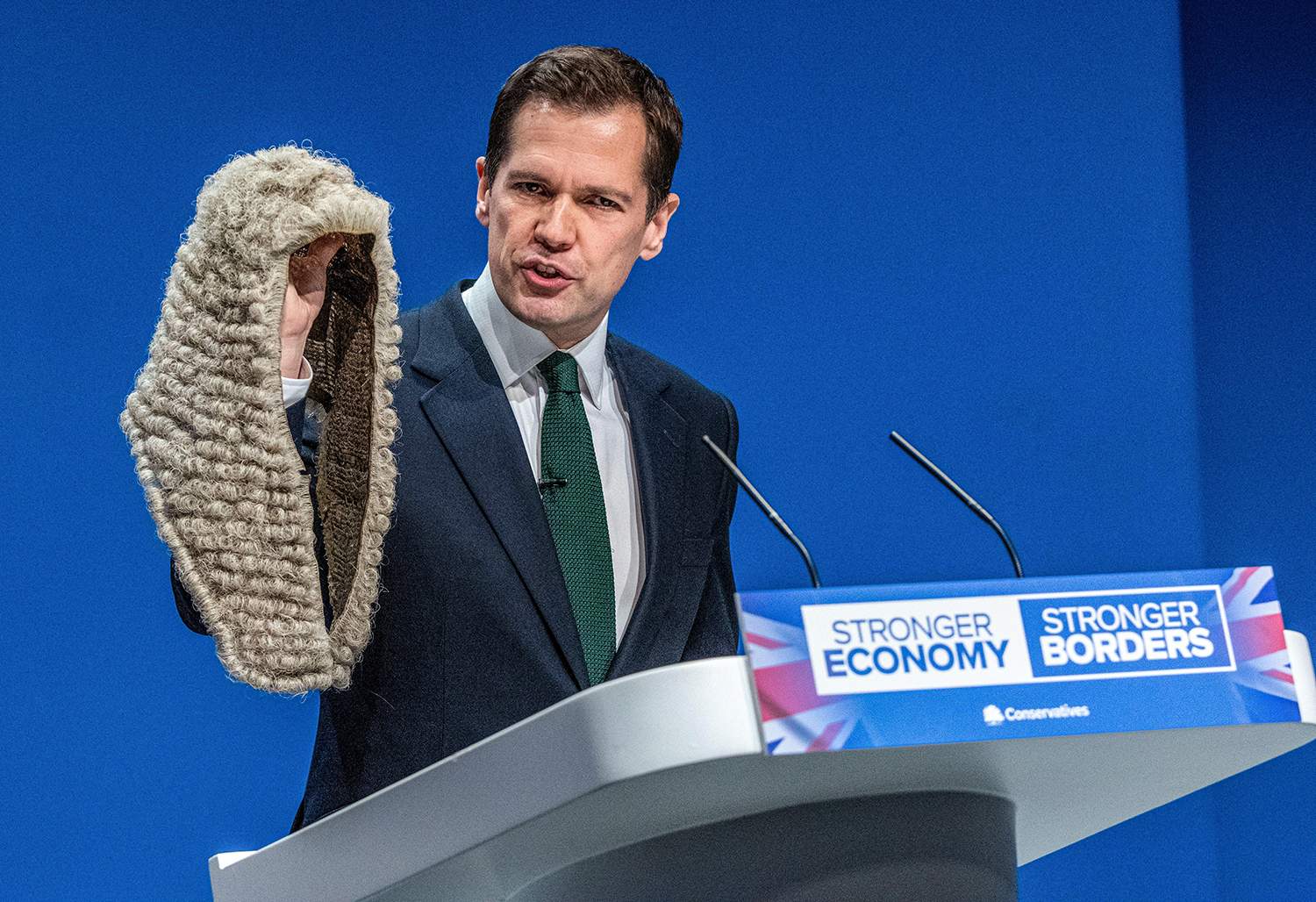
Read our Monthly Magazine
And support our mission to provide fearless stories about and outside the media system
As a politics student in the late 1980s, the subject of the separation of powers in Western liberal democracies was imparted to eager students as an irrefutable and unbendable principle in the same way, I imagine, that the rules concerning the freezing point of water were taught to students of physics or the ‘power rule for differentiation’ was taught to maths undergraduates.
Separating the judiciary from the executive and legislature, we were taught, was a vital ingredient in providing a check on the potential excesses of power by a tyrannical individual or political organisation seeking to oppress or silence opponents.
The concept was simple: the executive drives the legal agenda, the legislature checks the legal agenda and the judiciary interprets it.
All three play a vital and dynamic role in the process of fair and proper law making – and, not just in the abstract – it was something that we have been able to witness in practice. Just look, or so we thought, at the American Model, where the Supreme Court and Congress have, over the decades, robustly applied the powers imparted in them by the American constitution to provide a healthy barrier to any demonstrations of presidential excess.
ENJOYING THIS ARTICLE? HELP US TO PRODUCE MORE
Receive the monthly Byline Times newspaper and help to support fearless, independent journalism that breaks stories, shapes the agenda and holds power to account.
We’re not funded by a billionaire oligarch or an offshore hedge-fund. We rely on our readers to fund our journalism. If you like what we do, please subscribe.
The UK, though not quite so formulated as our American brethren, has also enjoyed a clear and cogent distinction between the roles played by the government, parliament and the judiciary.
In recent years, we’ve seen the UK Supreme Court judgements in a wide-range of profoundly important matters, ranging from the dispute about transgender women, to Boris Johnson’s government’s unlawful attempts to prorogue parliament; and, of course, in the decisions concerning the previous Conservative government’s plans to deport illegal immigrants to Rwanda.
These rulings are never going to satisfy everyone, because, by definition, in a dispute there is always going to be the disappointed party who has their case dismissed – but, that is precisely why we have the process of judicial adjudication – and, anyone who has appeared in the Supreme Court, or read their Lordship’s judgements will know that this is an austere and serious body populated by people of immense intellectual heft who, overwhelmingly, treat every case they are called upon to consider with great care and meticulous impartiality.
The idea that they are group of politically motivated liberals pursuing a political agenda designed to circumvent the will of the people, is absurd. Robert Jenrick – would be leader of the Conservative Party and Shadow Lord Chancellor’s declaration that he would take back the power to appoint judges, leave the European Convention on Human Rights and scrap the Sentencing Council and place sentencing power into the hands of government Ministers, is a clear declaration that he intends to follow the lead of other populist right wing leaders around the world, by attempting to accumulate more power into the hands of the executive and emasculate the judiciary.
It’s a brazen political move, fuelled by a populist desire to point the finger of blame for the failure of successive governments to improve the lives of ordinary people at a scapegoat who can’t really publicly defend itself.
One only has to look at America under Donald Trump to see the direction of travel once a government, led by a narcissist with an authoritarian bent decides that he is more powerful than any court of law or any legislative chamber.
Jenrick’s speech reveals that he is a man with a similar belief that judges are not there to protect us from the excesses of politicians but are liberal irritants whose powers must be diminished as they are brought to heel.
Currently, Judges are chosen by an independent organisation called the Judicial Appointments Commission (JAC), which is made up of former judges, lawyers and lay-members to ensure that judicial appointments are made on merit and reflect society, it is an arduous process; whilst the process of appointing Supreme Court Judges is even more exacting, with a special independent body set up to ensure that only the very best legal minds take up a role on Britain’s highest court.
And as any lawyer will tell you, in terms of integrity, ability and fairness, the quality of British judiciary is extremely high and has improved massively since the JAC came into being in 2006.
Jenrick wants to scrap the JAC and return the power to appoint Judges back to Government Ministers. Will this make judges more objective and in tune with ordinary people? No, all this will do is ensure that judges rather than being robust and independent will be beholden to the governing party, it undermines the separation of powers, and rather than protecting the rights and freedoms of individuals it undermines and imperils them.
FEARLESS, INDEPENDENT JOURNALISM & INCREDIBLE VALUE
Receive the monthly Byline Times newspaper and support quality, investigative reporting.
As does Jenrick’s stated desire to scrap the Sentencing Council. The Sentencing Council is another independent body made up of judges, lawyers and academics, that provides recommendations to judges as to what sentence should be handed down to those who are convicted of various offences.
It takes into consideration the typical levels of harm that are felt by those who are the victims of crime and the features that allow a judge to categorise an individual according to his or her culpability and sets out the correct process that any sentencing judge should follow. Since its inception in 2009, without doubt, sentencing has become far more consistent and transparent. The number of criminals appealing their sentence has been reduced, whilst the idea that sentencing has somehow ‘gone soft’ as a result of the work of the Sentencing Council is not born out by the evidence: in 2000, the average sentence for someone convicted of rape was seven years and one month, today, that average has risen to 10 years. Similarly, in 2000, those convicted of Grievous Bodily Harm With Intent could expect a sentence of around four years, but would now be more likely to be sentenced to six.
The idea that Ministers, with often little or no real experience of the Criminal Justice System (like Mr Jenrick) should be entrusted to draw up sentencing guidelines is a prospect that fills most people who practice at the coal face of the system with absolute dread, as sentencing and the potential to remove someone from society and place them in prison should never be decided by the whims of an ambitious politician, the latest Daily Mail campaign or the crazed and masked lunatics who make up the loudest voices on social media.
There was a time, when conservatives would have manned the barricades in their opposition to any suggestion that the separation of powers be undermined and it is, perhaps, an indication of the current plight of both the British Conservative Party which is desperately searching for an identity, and the current failure of politicians to stem the desire by populist parties to chip away at the institutions that have, for generations, successfully kept us safe from the excesses of authoritarian political leaders.
